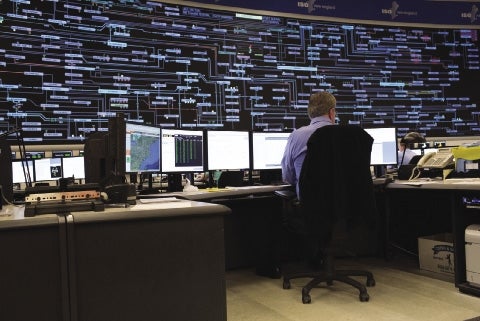The controversial Kinder Morgan pipeline that was supposed to give Massachusetts relief from a constrained natural gas supply has been cancelled. While its end puts a halt to the debate surrounding it, the larger issue of high energy costs for the state remain.
“We’re so much more expensive than other parts of the country, and it does put us at a competitive disadvantage and our concern is we will continue to lose employers to other states that are actively recruiting,” said Roy Nascimento, president and CEO of the Fitchburg-based North Central Massachusetts Chamber of Commerce that had supported the pipeline in order to help relieve cost constraints.
What was it?
The Northeast Expansion Project pipeline would have increased the amount of natural gas flowing into the region from Pennsylvania, thus bringing down cost for the fuel that sees high demand in the winter for both heating and electricity production. The price of natural gas is a key factor in the price of wholesale power because the fuel generates 49 percent of the electricity produced in New England, according to regional electric grid administrator ISO New England.
However, the pipeline had created controversy over its environmental impact, along with the implication that bringing more natural gas into the region would increase Massachusetts’ reliance on fossil fuels.
Why should I care?
Because manufacturers and other heavy power users care, especially in North Central Massachusetts that has a high number of Central Massachusett’s manufacturers. For these businesses, power is a huge portion of their overall costs, said Nascimento.
“Energy goes up one penny, and that’s a million dollars a year more in expenses for a fairly large manufacturer,” he said.
These high costs make the state less competitive in all areas of manufacturing, which includes the much-touted biotech industry.
What now?
Nascimento is in favor of moving forward in any kind of area that will cut the costs of electricity to businesses. This includes natural gas, he said, but also alternative energy sources such as solar, wind and hydro.
A concern in the state is figuring out where to site these alternative energy sources, as wind farms and even solar farms have had location issues, he said.
Ultimately, Nascimento said, the state needs to figure out a way to relieve the power-price differential, which will be increasingly difficult as more coal and nuclear power plants come off line.
“Long term, I think we will see energy prices increase until we find a solution to our energy needs,” he said.

